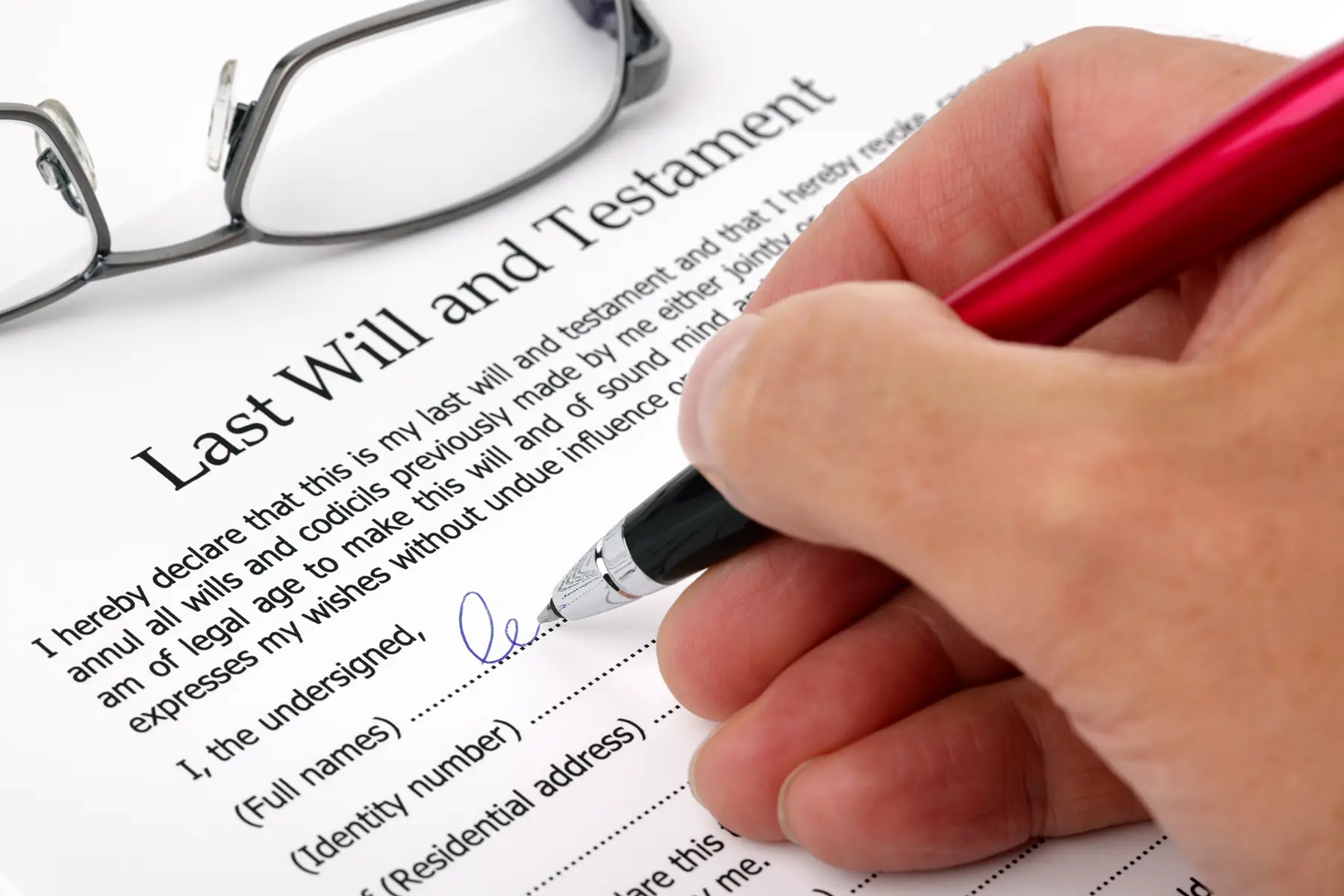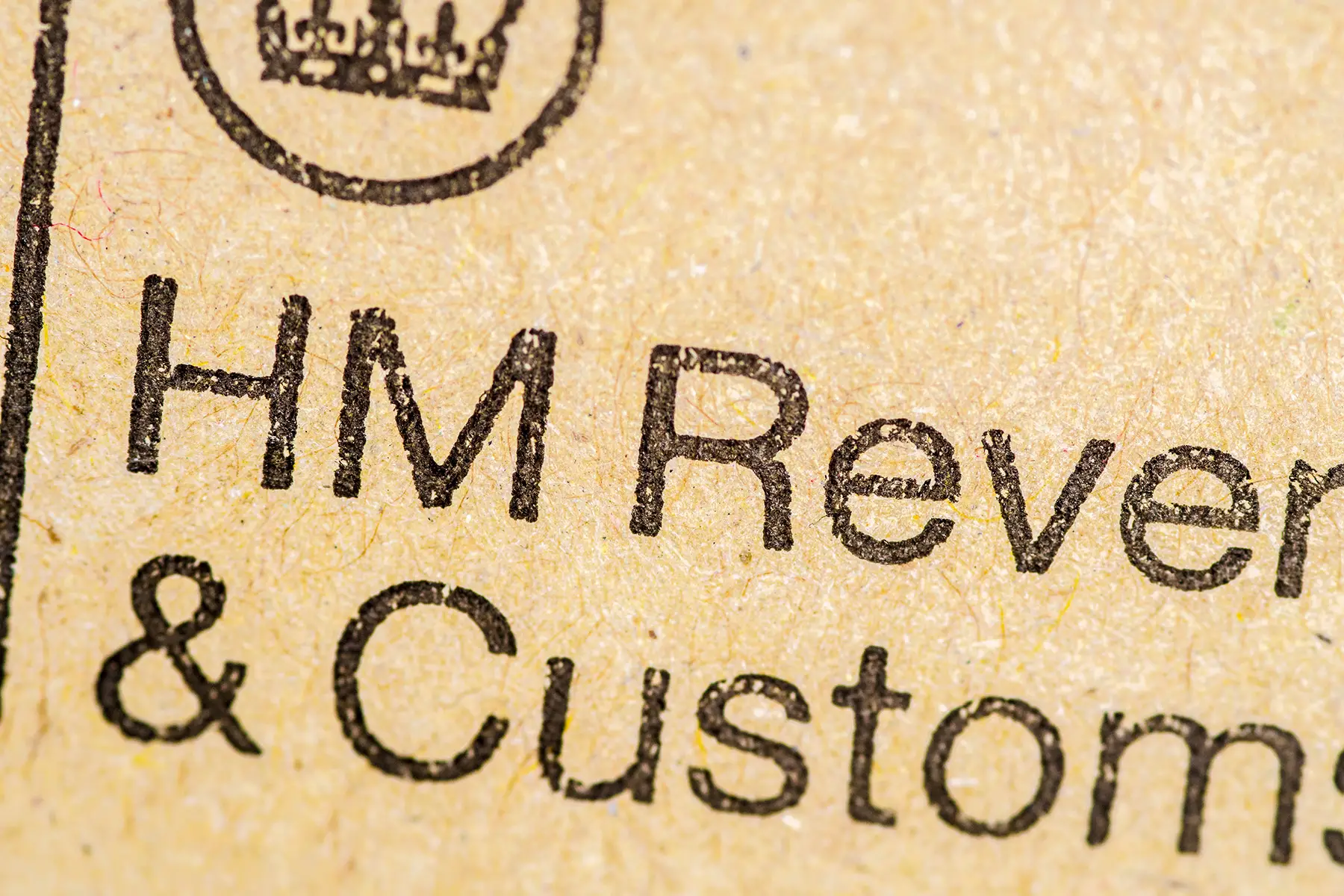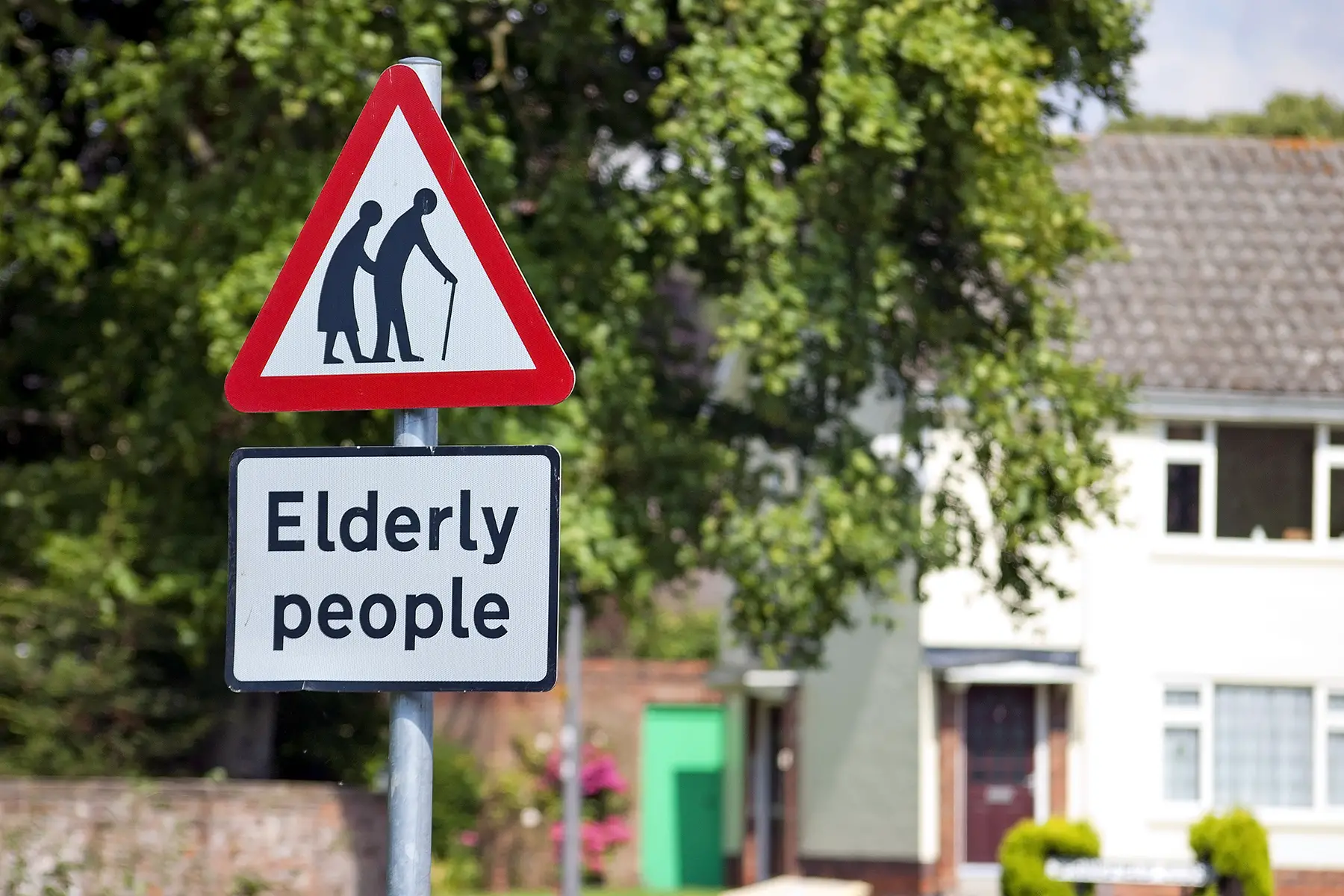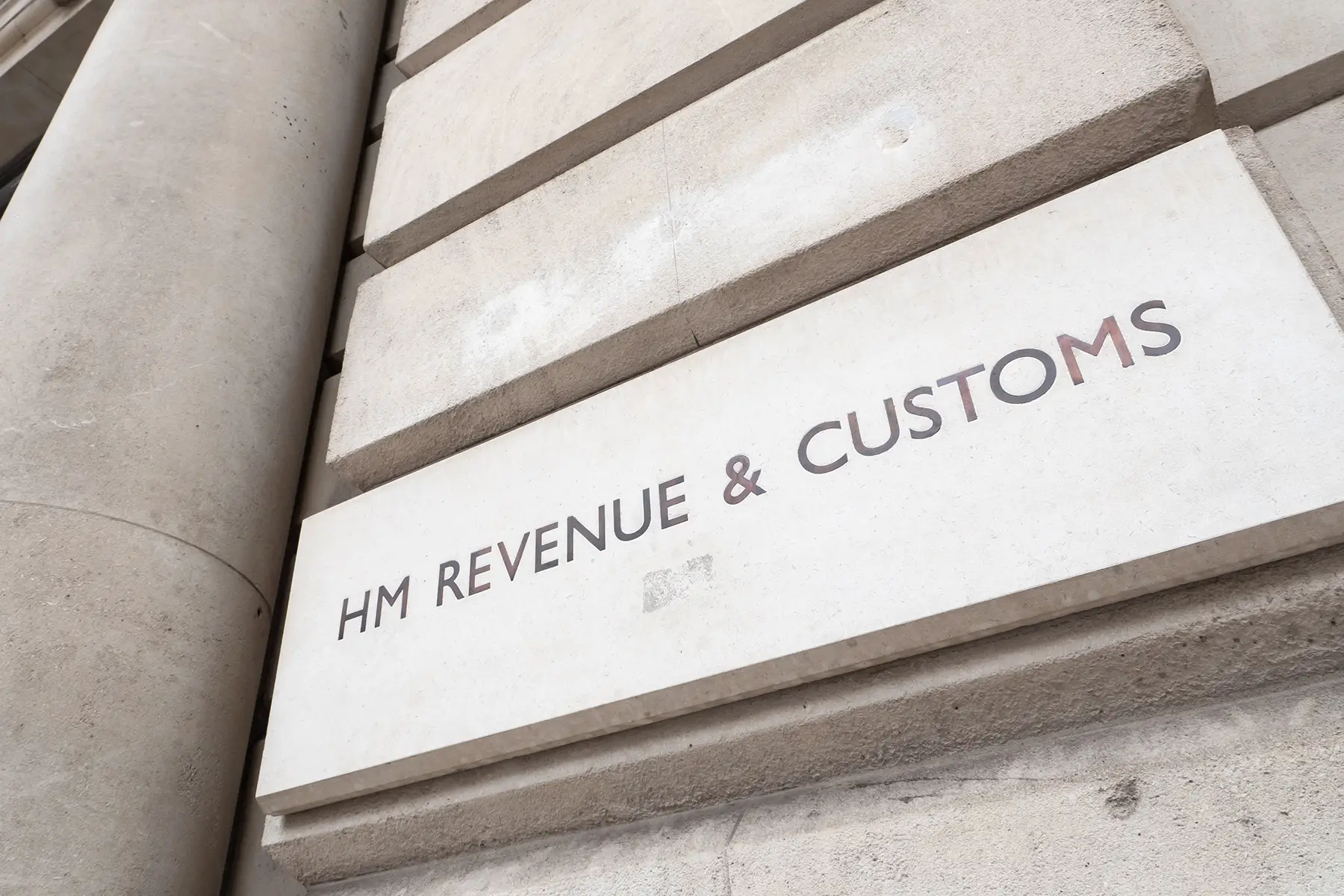If you are a foreigner living in the UK (or if you own property there), you must consider how British inheritance law affects you and your heirs. In some cases, it may be beneficial to write a last will and testament to protect your assets in the event of your death – although conditions apply when writing wills.
This article explains whether the UK’s inheritance law applies to your estate, or the law of your home country, and gives details on how much tax applies after meeting the UK inheritance tax threshold:
Wise
Do your finances go beyond borders? Then you need a fast and secure way to move money internationally. Wise is a global leader in online international money transfers, letting you move money at an exchange rate several times cheaper than your bank. Whatever your personal or business needs, Wise can make your money go further.
Inheritance and succession laws in the UK
Who is subject to UK inheritance law?
Inheritance law in the UK applies to all official residents, whether national or from overseas, on all of their worldwide movable assets.

If you are a non-resident who owns property in the UK, British inheritance law – and consequently inheritance tax in the UK – will also apply to some of your estate.
Which country’s laws does your estate depend on?
The UK is one of three countries (along with Denmark and Ireland) that opted out of changes to European Union inheritance regulations in 2015, which give citizens living abroad in the EU the choice to have their estate dealt with according to the laws of their home country or country of residence.
However, since the UK left the EU in 2020, new legislation may affect these rules, so think about seeking legal counsel before making any decisions.
Who inherits your estate in the UK?
Inheritance laws in the UK vary across the constituent countries. In England and Wales, there is no forced heirship, and people are free to leave their property to whomever they wish by making a last will and testament in the UK.
However, in Scotland, a surviving spouse and children have a statutory claim to parts of the estate. If the deceased had a spouse and children, both parties can receive a third each (one-third split equally between children if more than one) of the net movable assets (everything excluding property and land). Where there is only a spouse or children, their entitlement is 50% of net movable assets.
Writing a will in the UK
According to a some estimates, around six in ten adults in Great Britain do not have a will. Be aware that without a will, any estates left behind are divided according to UK inheritance law.
Such rules may not always be in accordance with your wishes; for instance, unmarried partners do not automatically receive a share of any estate.

However, it’s fairly straightforward to create a will in the UK. You can do so with the help of a solicitor, certain charities, or you can even legally write your own will. Alternatively, there are a growing number of online platforms that can help you with this delicate process.
For more information on what you need to prepare, read our expert guide to planning wills and estates in the UK.
What if there is no will?
If a British resident dies without leaving a will, intestacy law determines the distribution of their estate and what UK inheritance tax is due. Again, this is different in England and Wales than it is in Scotland.
Intestacy rules in England and Wales
You can check your UK inheritance rights on the UK government website.
| If there is a surviving spouse/civil partner and children | Since July 2023, the spouse/partner receives the first £322,000 – called the statutory legacy – of the estate and all their personal possessions, whatever their value. Half of the remainder also goes to the spouse or partner, with the rest split equally between any children. The share of any minor children is held in trust until they reach 18. If any children are deceased, their share goes to any grandchildren. The spouse or civil partner inherits even though the couple may have informally separated and were had not yet legally divorced or ended the partnership at the time of death. |
| Where there is a surviving spouse/partner but no children | Here, the spouse/partner gets the entire estate. |
| If there is no surviving spouse/partner | The whole estate is distributed between the children or grandchildren. If there are no children or grandchildren, the estate passes to the following groups in descending order: parents, siblings (or nephews/nieces if deceased), half-siblings (or their children if deceased), grandparents, uncles/aunts (or cousins if deceased), half-brothers and half-sisters of parents (or their children if deceased). |
Intestacy rules in Scotland
Inheritance rules when someone dies intestate in Scotland are more complex. This is because there are numerous stages, with surviving family members receiving different shares of the deceased’s estate. The Scottish government began an inquiry in 2019 to reform the intestacy rules but has not yet reached a solution.
The current rules are in the table below.
| Parts of estate | Spouse/partner and children | Spouse/partner but no children | Children but no spouse/partner | Neither spouse/partner nor children |
| Family home | Spouse/partner up to a value of £473,000. If the house is worth more, it may need to be sold | Spouse/partner up to a value of £473,000. | Shared equally between children or their descendants | Split in half between parents and siblings. If siblings are deceased, this passes to nieces/nephews. |
| Furniture | Spouse/partner up to a value of £29,000. | |||
| Finances | £50,000 to spouse/partner. | £89,000 to spouse/partner. | Shared equally between children or their descendants | Split in half between parents and siblings. If siblings are deceased, this passes to nieces/nephews. |
| Remainder of estate | One-third of estate to spouse/partner. Remaining two-thirds in equal shares to children (or grandchildren if deceased). | One-third of estate to spouse/partner. Remaining two-thirds split in half between surviving parents and siblings. If siblings are deceased, this passes to nieces/nephews. If no survivors from either group, 100% to spouse/partner. | Shared equally between children or their descendants | Split in half between parents and siblings. If siblings are deceased, this passes to nieces/nephews. If none from either group, then the whole estate is passed down in descending order to: aunts/uncles, grandparents, great aunts/uncles, more distant relatives. |
The Scottish government is looking to modernize the intestate rules with consideration for the rights of cohabitants (at present, there is no automatic right to inherit) and step-children.
Intestacy rules in Northern Ireland
| If there is a surviving spouse/civil partner and children | The spouse/partner receives the first £250,000 but they must survive the deceased by at least 28 days. If the deceased left one child, they are entitled to 50% of the remainder of the estate. If there is more than one child, the spouse/civil partner gets one-third of the remainder. The other two-thirds is divided equally between the children (or the respective grandchildren if the children died while the deceased was still alive). |
| Where there is a surviving spouse/partner but no children or grandchildren | The spouse/partner gets the first £450,000 but they must survive the deceased by at least 28 days. Surviving parents are entitled to 50% of the remainder (equally if both are alive). If there are no surviving parents, then the share goes to the siblings of the deceased (or nieces/nephews). Where there are none from these groups, the spouse/partner inherits the whole estate. |
| If there is no surviving spouse/partner | The whole estate is distributed equally between the children or grandchildren. If there are no children or grandchildren, the estate passes to the following groups in descending order: parents, siblings (or nephews/nieces if deceased), half-siblings (or their children if deceased), grandparents, uncles/aunts (or cousins if deceased). |
In Scotland and Northern Ireland, a surviving spouse/partner has no automatic right to inherit the estate. If the deceased has not provided for their partner in some way, they have the right to file a claim to their inheritance.
UK inheritance law regarding marriage
UK inheritance law regarding married couples is different than in many European countries. Under UK inheritance law, marriage doesn’t result in jointly-owned matrimonial or community property unless the couple specifically places such property under joint ownership. As there is no forced heirship in England and Wales, you can freely give away property during your lifetime. However, such gifts may attract UK inheritance tax or gift tax, depending on when you make them.
Under UK property law, gifting is possible via trusts. This means there is a distinction between the legal owner of a property (the trustee) and the beneficial owner (the recipient). Trusts cannot be registered at the land registry. You can find information on updating property records with the UK land registry when someone dies on the UK government website.
Unclaimed inheritance in the UK
If there is an unclaimed inheritance in the UK, if there are no legal heirs or the beneficiaries reject the inheritance, then the estate passes to the crown as ownerless property (or bona vacantia). However, it is possible to make a claim on the estate if you feel you’re entitled to a share. People who are eligible to claim a share must be entitled relatives.

Writer and local expert
Gary Buswell
Insider tip
If you are not related to the deceased, such as a live-in partner or a carer, you can still apply for a grant from the estate.
To claim a share of someone’s estate, apply on the UK government website.
Inheritance tax in the UK
The standard UK inheritance tax rate is 40%.
In the UK, inheritance tax falls due to the estate of deceased residents and on the British property of someone who lived overseas. Such property may include:
- real estate
- cash
- investments
- most of the deceased’s possessions.
UK inheritance tax is payable on the net value of the estate, plus on any lifetime gifts made in the last seven years of the deceased’s life.

The executor of the will, or the person who administers the estate if there is no will and testament, pays inheritance tax before it is handed down. Beneficiaries, therefore, don’t pay UK inheritance tax from their own savings. However, they may be liable for other taxes (e.g., income tax or capital gains tax) if they make money from earning income or selling assets they have inherited.
As with all other taxes in the UK, inheritance tax is payable to HM Revenue and Customs (HMRC).
Rates and reductions on inheritance tax in the UK
The standard rate for inheritance tax in the UK is 40%. Tax rates and exemptions are the same for nationals and foreign residents, as well as for non-residents with property in the UK. However, only a small percentage of estates – between 4-5% – are large enough to incur inheritance tax.
This is because there are several allowances and exemptions to reduce the amount of inheritance tax payable on an estate:
- There is normally no tax if the estate is less than £325,000 (the residence nil rate band or RNRB). This tax-free threshold applies to estates of all sizes; thus the 40% tax applies only to the portion of the estate above this amount. The RNRB will remain the same until at least 2026.
- Spouses/civil partners, charities, and amateur sports clubs are exempt from UK inheritance tax.
- Gifts given during the deceased’s lifetime up to a period of seven years before death are exempt from UK inheritance tax.
- 50–100% tax relief is available on some business assets.
- The UK inheritance tax rate on the estate can lessen to 36% if the deceased leaves at least 10% of the estate to charity. You can find a list of charities and a reduced rate inheritance tax calculator for the UK.
- If children (including adopted, foster, and stepchildren) or grandchildren inherit the main home, there is a tax-free threshold of up to £500,000 on this property if your estate is worth less than £2 million.
You can check your likely inheritance taxes on the governments inheritance tax calculator for the UK.
Regardless of the value of an estate, you’ll still need to report it to HMRC. You can find information on how to pay your UK inheritance tax bill on the UK government website.
As for all other types of fiscal duties, the UK also has tax treaties with several countries to avoid double taxation.
Inheritance tax forms
The UK government provides a number of forms relating to inheritance tax claims, including IHT 400 and IHT 401 for non-residents. If you owe no inheritance tax (for example, the value is less than the UK inheritance threshold of £325,000), use Form IHT 205.
The British government maintains a full list of forms regarding inheritance tax.
UK Inheritance tax threshold
The general inheritance tax threshold, or the RNRB, allows properties up to the value of £325,000 to be inheritance-tax-free. However, the threshold can increase in certain situations. For example, if you give your home to your children or grandchildren the threshold increases to £500,000.
If the inheritance doesn’t meet the full threshold value, any unused threshold can transfer to a spouse or partner’s threshold. Most married couples or civil partners may pass on up to £650,000, or £1,000,000 if your estate includes your home, effectively doubling the amount the surviving partner can leave behind free of UK inheritance tax.
In addition, certain other claims are eligible for an additional UK inheritance tax threshold, with one main condition being that a share of the estate must go to a direct descendant (i.e., child or grandchild). The additional maximum threshold (on top of £325,000) is £175,000. This threshold will remain until at least 2026.
Gift tax in the UK
Gifts made during the last seven years of life are subject to UK inheritance tax, although any gifts made three to seven years before death are taxed at a reduced rate if they are worth more than £325,000.

Such gifts include anything of value, such as money, property, possessions, or when an asset suffers a loss in value at the time of transfer. For example, if you sell your house to your child for less than it’s worth, the difference in value counts as a gift.
UK inheritance tax on gifts is levied at the full 40% within three years of death. Gifts made between the fourth and seventh years from a person’s death incur gift tax. These rates taper off gradually as outlined below:
- Less than three years: 40%
- Three to four years: 32%
- Four to five years: 24%
- Five to six years: 16%
- Six to seven years: 8%
- More than seven years: 0%
Exemptions
There is a UK inheritance tax exemption on gifts of £3,000 per year. You can use this on one person or split between multiple people. Such an exemption may carry forward to the next tax year – but only for one year.
You can give a tax-free gift to someone marrying or starting a civil partnership. This amount is £5,000 for your children, £2,500 to grandchildren, and £1,000 to anyone else.
Additionally, you can also make normal gifts out of your income or help certain family members with living expenses, so long as doing so does not affect your standard of living. Finally, you may give small gifts of up to £250 per person as you want during the tax year under certain conditions.
There’s also no inheritance tax to pay on gifts between spouses or civil partners. You can give them as much as you like during your lifetime, as long as they live in the UK permanently.
Consult the UK government’s guide for details.
Paying gift and inheritance tax in the UK
HMRC dictates that the executors of an estate must pay inheritance tax by the end of the sixth month after the person died. Following this deadline, HMRC will charge interest.
To pay an inheritance tax bill, you need a payment reference number. You can then pay from your own bank account or from a joint account you held with the deceased.
If you are unaware of how much exactly you need to pay, you may also pay an estimated amount, called a payment on account.
HMRC does not send receipts for installments made on an inheritance tax bill. Instead, they write to inform you when you have paid the entire amount and alert you to any outstanding interest payable.
Inheritance law on pensions in the UK
In general, UK rules allow anyone to inherit your pension upon your death. Your pension does not form part of your estate so your will does not cover it. Typically, you will make arrangements with your pension provider by filling in a form where you name the beneficiaries in the event of your death.

In most cases, your state pension will stop when you die and you cannot pass it on. However, your spouse can receive any built-up additional state pension if you reached retirement age before 6 April 2016 and married before this date.
You can leave any unspent money in your private or workplace pension pot to whomever you choose if you have a ‘defined contribution’ pension where you pay into a pot towards your retirement income. However, if you have a ‘defined benefit’ pension linked to your earnings and length of service, or if you have purchased an annuity, you will need to make special arrangements if you want your spouse and/or dependents to receive this.
Currently, heirs do not pay inheritance tax on pensions left to them. However, this is due to change in April 2027. Money from inherited pensions will be added to the value of the deceased’s estate and taxed at the same rate with the same allowances available.
In most cases, your heir pays no income tax on your pension up to a limit of £1,073,100 if you die before the age of 75 years. Should you die after that, your heir will need to pay income tax at their marginal rate (in other words, the highest rate they pay).
See more information in this article from Unbiased.
Valuing an estate in the UK
When a UK resident dies, heirs must apply for the legal right to deal with their estate. This is applying for probate. In England and Wales, and Northern Ireland, there is a grant of probate if the person leaves a will; without a will, you receive letters of administration. In Scotland, this process is applying for confirmation. The processes are different in each constituent country, but in most cases, you can apply online (separate process for Northern Ireland and Scotland). You must provide a number of documents, such as the will itself and any codicils, certificates of birth, death, and marriage or partnership as applicable.
There are also occasions when you may not need probate; the UK government explains these conditions on its website.
How to value an estate
When applying for probate, you will need to estimate the estate’s value. There are two aspects to this process. First, contact banks, utility providers, and other institutions where the deceased had accounts and ask for an official statement of their assets. Second, value the other possessions of the deceased as of the day they died, including their home, car, jewelry, as well as any outstanding payments due to them, and any gifts they may have made in the preceding seven years. Also, estimate any outstanding debts. You may then calculate what UK inheritance tax applies to the estate.
You do not need an accountant to value the estate for you and can report these figures to HMRC directly. However, it is advisable to get a professional estimate, particularly if the deceased had assets of different kinds or if these were in different countries. If you’re looking for financial advisors in the UK, you can compare your options using Unbiased.
Valuing the estate can take six to nine months, or even longer for large estates. Accordingly, expats may want to put their affairs in order at the time of writing a will so as to ensure a smooth transfer of assets to their heirs.
Useful resources
- UK inheritance tax and probate helpline (or call +44 300 123 1072)
- UK government information on wills, inheritance law and taxes
- Solicitors in the UK
- NI Direct information on wills and inheritance laws in Northern Ireland
- Scottish government information on wills and inheritance laws







